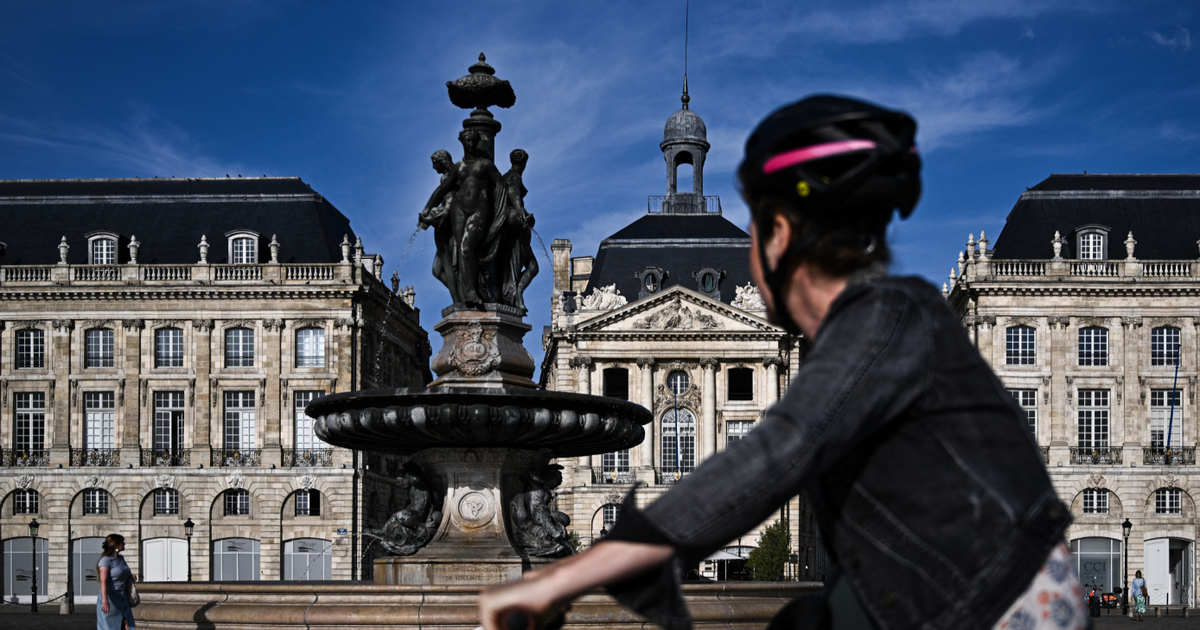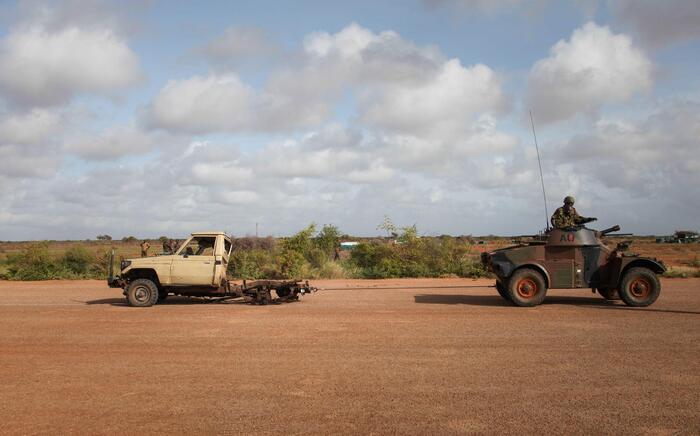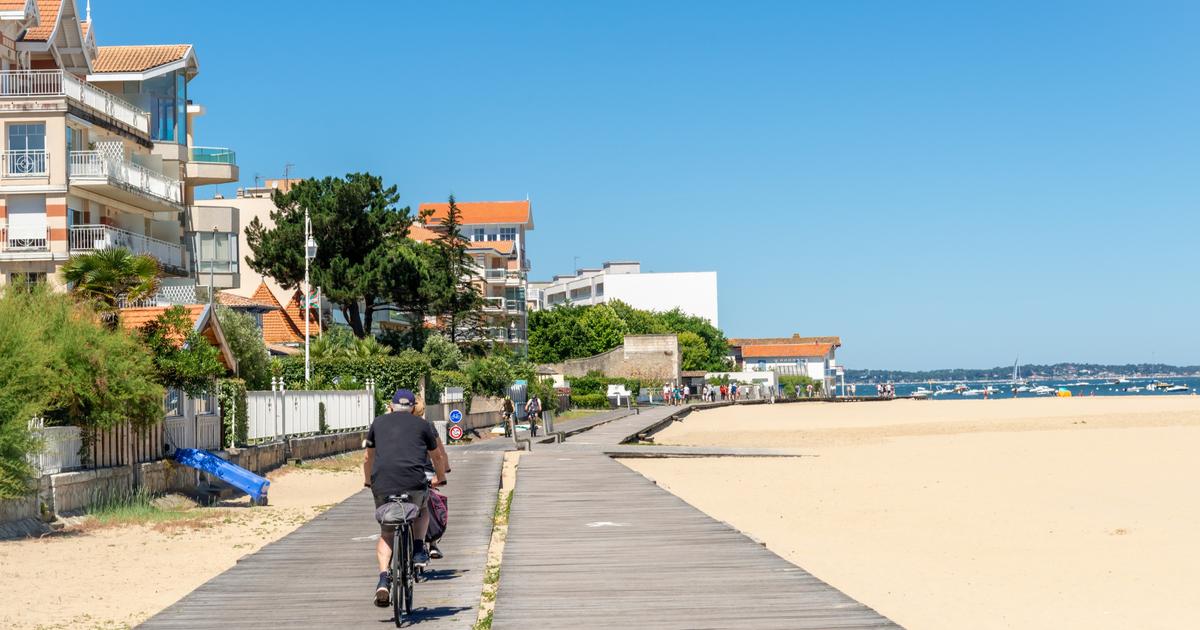AreaRead the video transcript expand here
Through the traffic with a whistle: cycling is a life-threatening hobby in Nairobi.
Nevertheless, the number of people who get on their bikes in their free time has exploded since the beginning of the corona pandemic.
Hashim Shatry, just called Zuzu in the cycling scene, also experiences this.
He organizes bike tours in and around the Kenyan capital three times a week.
He estimates that the number of recreational cyclists has tripled in the last two years.
Hashim Shatry, Zuzu Bike:
“There have been many more. It is increasing because everyone now knows what health means. Everyone wants to be healthy.«
There are obvious reasons why Zuzu's group is moving out of the city center with their racing bikes.
Hashim Shatry, Zuzu Bike:
“We have roads, we have everything. It's just the people, their attitude. People have to change their mentality. I am very careful on the road. I drive more defensively. So I haven't had an accident on the road yet, but others have. People just have to be more careful.”
Nevertheless, we dare the self-test: ten kilometers by bike through the streets of Nairobi.
Hill up - and hill down.
Heiner Hoffmann, DER SPIEGEL:
»It's also quite strenuous to ride a bike here, Nairobi is at an altitude of 1500 meters. You also notice the mountain air a bit.«
On average, it takes people 65 minutes to get to work here, and Nairobi is the fourth most congested city in the world.
The public cost of traffic pollution is approximately $175 million annually.
On the saddle, it quickly becomes clear: You won't find any binding traffic rules, instead you'll just find a way through the chaos.
And the air isn't good either.
Heiner Hoffmann, DER SPIEGEL:
»You really see a lot more cyclists on the street. But you also see a lot of situations in which they live really dangerously, especially cars driving by very closely. You always hear stories of cyclists having accidents. It's a very dangerous hobby. But the advantage is:
You can always drive past traffic jams.
(...) Sometimes you have to find the gap.«
In Kenya, the bicycle was considered a means of transport for poor people.
In East Africa, heavy models assembled from robust parts are particularly common.
The bikes, dubbed “Black Mambas”, have been serving their purpose here for decades – either as cargo bikes or as taxis for transporting people.
But during the pandemic, many began to see two-wheelers as fitness equipment.
And a way to save time.
Some still have to learn how to ride a bike.
Women get support from Salome Kanini, nicknamed Sally.
Salome Kanini, bicycle instructor:
“You have to teach them like children. Most of them are middle class, the ones who are in the offices now. They're going to start now. They are between 38 and 58 years old, our oldest is 62.«
Sally works for Dadarides, an organization dedicated to promoting women's cycling in Nairobi.
Today she trains Rachel.
Because of Corona, she mainly works from home.
In search of a balance, she came across Dadarides' training.
Today is Rachel's second driving lesson.
Rachel Njeri, cyclist:
»Yes, I have decided to learn to ride a bike. But there are also setbacks. I don't want to do anything wrong, I don't want to fall.«
Like Rachel, many women in Nairobi have never learned to ride a bike, or have not done so since childhood.
Salome Kanini, trainer:
»Let's put it this way: We drive when we're younger. But if you look at high schools and colleges, you'll find that women hardly ever ride bikes anymore. Because we come from different cultures in Kenya, and not all of them feel comfortable with women on bicycles.«
Today it works for Rachel without a fall.
Rachel Njeri, cyclist:
"It is great. Sally says I'm a fast learner. This is my second lesson and I think after the third I can ride alone. It's really a lot of fun. And I think it's a good weekend activity.'
Trainer Sally gives a few more tips, then she has to go straight on to the next customer.
Business is also booming for Bobby.
When the corona virus was discovered in China, he had just opened a bicycle shop.
Bobby Reriani, Bike Dealer:
»When I started selling bicycles in 2019, Corona came in very handy. It wasn't something you could ever predict in your business plans or forecasts. So it was quite a nice boost from the virus.”
The special feature: Bobby designs his own bikes and assembles them himself.
They are the first bikes "Made in Kenya" - with particularly robust parts for Nairobi's pothole slopes.
Bobby Reriani, Bike Dealer:
“We had to get special frames that are double and smooth welded. All of that had to be considered, even the design of the bikes. That was particularly important.«
Nairobi's middle class is growing - and with it the fitness boom - but only a few can afford such high-quality bicycles.
Bobby therefore also rents out his bikes for bike tours.
So also to us, for our test drive.
Heiner Hoffmann, DER SPIEGEL:
»There is also a lot going on in Nairobi. Here we are driving on a new expressway and here there is actually a kind of side strip where cyclists can ride on it. That doesn't mean that the cars are really far away, but at least there is this strip. (...) And in between, the hard shoulder just stops. You have to live with that.«



/cloudfront-eu-central-1.images.arcpublishing.com/prisa/O5KJZWDZ2ZF3PMFCA7GSGYAIW4.jpg)











